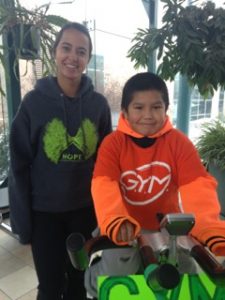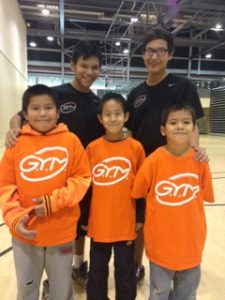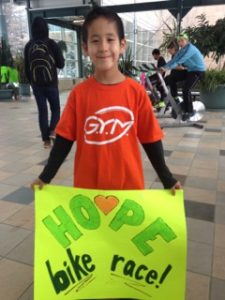Category: Community Engagement
Growing Young Movers
Health, Outdoor, and Physical Education (HOPE) Fundraiser
Community-Based Researchers and Co-Founders of Growing Young Movers
Dr. Sean Lessard
Doctoral Dissertation Award
Community-Based Researchers and Co-Founders of Growing Young Movers
Recipient of CEA Pat Clifford Award
Looking at Homelessness, the Regina Context, and What to DO!
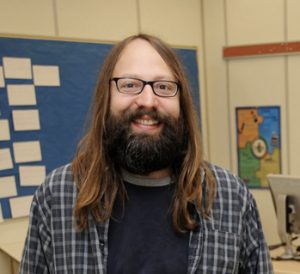 Dr. Marc Spooner presented Looking at Homelessness, the Regina Context, and What to DO! on February 8, 2015 for the Unitarian Fellowship Regina.
Dr. Marc Spooner presented Looking at Homelessness, the Regina Context, and What to DO! on February 8, 2015 for the Unitarian Fellowship Regina.
In his talk, he examined homelessness from four, complex, inter-dependent, interactive, and mutually enforcing facets: Geographically, Temporally, Socially, and Civically. A closer look at the Regina context follows.
You can listen to his podcast here.
Dr. Marc Spooner Speaks on Poverty
Dr. Marc Spooner Speaks on Systemic Injustice
Homelessness in Regina: Taking Stock, Taking Action
#TreatyEdCamp Recognized at Legislative Assembly
MLA and NDP Deputy Leader Trent Wotherspoon recognized the Faculty of Education’s #TreatyEdCamp in the legislature on November 19, 2015 (transcript below or see page 7723 of the online copy ).
“Mr. Wotherspoon: — On November 4th, the U of R [University of Regina] hosted a progressive and impressive learning opportunity for teachers here in Saskatchewan. The Treaty Edcamp was a professional development event organized by the U of R chapter of the Student Teachers Anti-Racist/Anti-Oppressive Society with the support of the Faculty of Education and Dean, Dr. Jennifer Tupper. We know how important treaty education is for our province. Every acre is covered by treaty and every resident is party to the treaty.
There were more than 30 presenters leading the discussions about how to incorporate treaty education into classrooms, creating a rich learning opportunity. Also impressive were the 250 teachers and students from across Saskatchewan that came to Regina to attend the camp on their own time on a Saturday. Some sessions focused on how to incorporate the treaties into math and science; others focused on strategies for talking about dark parts of our history with young students — all important topics for reconciliation in our province.
And so I ask all members to join me in thanking Meagan Dobson, Katia Hildebrandt, Raquel Bellefleur for their work in organizing this conference and in recognizing the important work being done by students, teachers, elders, professors, educators, and administrators across our province to ensure that every student in Saskatchewan learns how important treaties have been in shaping Saskatchewan’s past and the fundamental role they must play in our province’s future if Saskatchewan is going to reach its full potential. We are, after all, all treaty people. Thank you, Mr. Speaker.” (Debates and Proceedings)
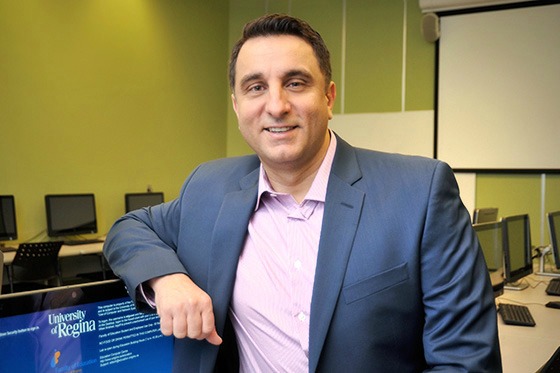
Education Professor to Engage with Thousands of Students in Online Youth Forum
University of Regina professor Dr. Alec Couros is about to address an unusually huge class.
More than 8,800 elementary and high school students from across Saskatchewan will connect with Couros on Tuesday, November 17 in a live, interactive broadcast.
The presentation is part of the “2015 Student First Anti-Bullying Forum,” held in conjunction with Bullying Awareness Week in Canada.
Couros is regularly asked to speak to students about these topics, usually in classrooms, school gyms, or auditoriums. The format for this anti-bullying forum offers an opportunity to reach out to far more students at once.
“I’m thrilled to be a part of the forum, and this format provides a unique opportunity for conversation and interaction with students from across the province,” says Couros, who is an Associate Professor of Educational Technology & Media in the Faculty of Education.
“An event of this size and format would certainly be more difficult in a face-to-face context. Digital technologies and access to robust information networks are critical in allowing us to hear from all students, regardless of location.”
Couros will talk to students about both the difficulties and opportunities offered by our increasingly digital world, as well as how young people can develop a positive digital identity and contribute to society in constructive and transformative ways.
“Our students are constantly participating and interacting in online spaces, and this can lead to complexities around issues of digital citizenship and digital identity, including cyberbullying.
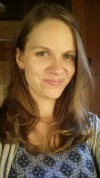
“The Internet has become an integral part of our world. Due to the ubiquitous nature of technology in our lives, it is no longer possible to be completely ‘offline.’ Thus, we need to give youth the skills to participate in positive ways and to become upstanders instead of bystanders.”
Couros has built a strong reputation, both in the classroom and on social media. He has more than 95,000 followers on Twitter, and he’s considered one of the pioneers of ‘massive open online courses’ or MOOCS, which can make education more accessible and allow for the global exchange of ideas.“We are no longer learning in isolation. The classroom walls have come down, and we need to give students the tools to take advantage of the incredible opportunities available to them in our connected world,” says Couros, whose presentation at the forum will include plenty of opportunities for students to interact and discuss ways to shape their world.The forum will be moderated by Katia Hildebrandt, a Ph.D. candidate and sessional instructor in the Faculty of Education. She played a vital role in the previous two events, which were held face-to-face.“There was certainly something powerful about bringing students together and giving them the space to connect and collaborate with each other in that setting,” says Hildebrandt, who helped write the teacher facilitation guide for the sessions this week.“But the online format allows for dramatically increased access and provides authentic opportunities for students to engage with these important issues using tools and modalities that are the same or similar to those they already use in their daily lives.”The forum is hosted by the Saskatchewan Ministry of Education in partnership with ‘I am Stronger,’ an initiative from SaskTel to combat bullying in schools.Additional support was provided by the Canadian Red Cross and KidSport.
The Faculty of Education at the University of Regina has a fine reputation for strong undergraduate teacher education programs, graduate programs, and adult education.
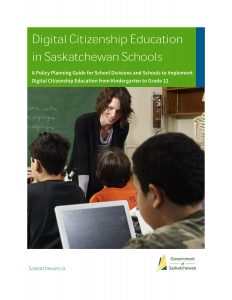 Couros and Hildebrandt recently co-authored the Digital Citizenship Education in Saskatchewan Schools: A Policy Planning Guide for School Divisions and Schools to Implement Digital Citizenship Education From Kindergarten to Grade 12 for the Saskatchewan Ministry of Education. Retrieve from here.
Couros and Hildebrandt recently co-authored the Digital Citizenship Education in Saskatchewan Schools: A Policy Planning Guide for School Divisions and Schools to Implement Digital Citizenship Education From Kindergarten to Grade 12 for the Saskatchewan Ministry of Education. Retrieve from here.
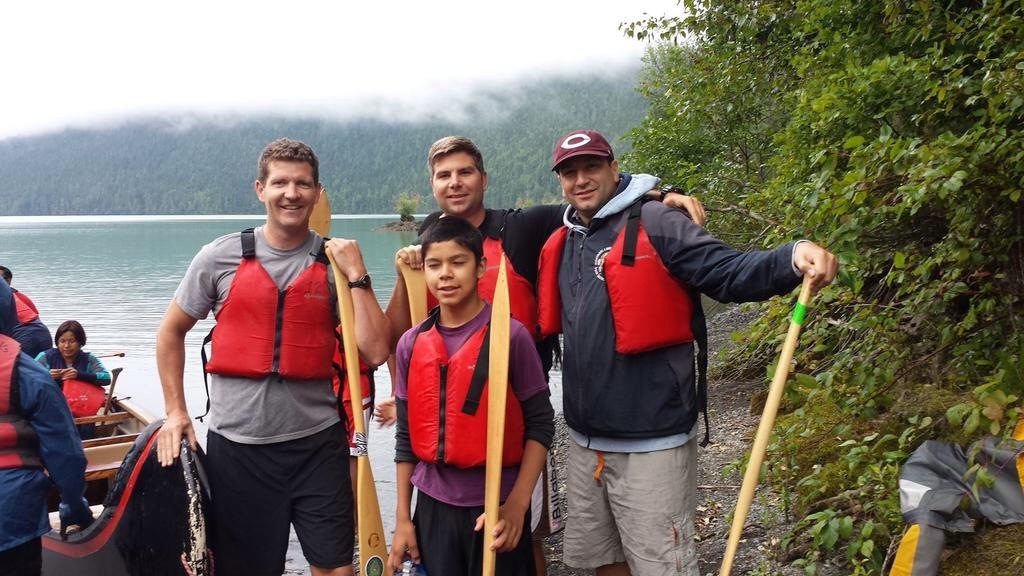
Community-Based Researchers and Co-Founders of Growing Young Movers
Community-based research is unique because it is not just research—It’s about developing relationships and transforming lives. Commitments are long-term and indefinite, and the research must be a secondary concern. Such is the case for three researchers, Brian Lewis, Dr. Sean Lessard, and Dr. Lee Schaefer, who are involved in the development of and research with Growing Young Movers (GYM), an after school program dedicated to the social, emotional, and physical development of children and youth from North Central Regina.
Brian Lewis, a doctoral candidate in the Faculty of Education, and a past Physical Education/Health Consultant for Regina Catholic School Division, had a vision for after school programming for youth around movement, wellness, and physical education. When Lewis first met Schaefer and Lessard, professors in the Faculty of Education, he was looking to do further programming. “I was trying to run programs that looked different than the typical sport programs, than the ones I had seen as an educator,” he says. The three began informally discussing the need they saw for after school programming that would reach students who may have less access to competitive sports, and who may not have the opportunity to participate in such a program. “We began talking about the possibility of creating a space where we could connect with a community and research alongside that community,” says Lessard
“There was good symmetry between us,” says Lessard. “I was new to Regina, and had acquired funding that could be directed towards a new program. Brian is unbelievably skilled in terms of working within programming…as soon as Brian started asking, ‘What about all the other kids that don’t get a chance to participate?’, I was 100% in,” says Lessard.
Lessard’s strength is in working with communities and Aboriginal youth as well as advocating for funding, and Schaefer offers his expertise in the research process. “Lee is our methodologist; he keeps us on track, works on data collection and administrating the project,” says Lessard. Schaefer’s interest in movement and physical literacy complements Lewis’s interest. Schaefer also brings to the program his connection to the Faculty of Education’s Health Outdoor Physical Education (HOPE) student association for which he is faculty liaison. Through this connection, GYM has access to university students who are interested in volunteering their time to work with the program. HOPE students have also assisted the GYM program through a variety of fundraisers, which have provided equipment and resources to the program, including the purchase of running shoes for each of the students in the GYM.
“We could also agree on the methodology for the research,” says Lessard. The research methods are a mix of indigenous methodology and narrative inquiry, qualitative methods that allow the research to grow slowly out of relationship with the participants. “We do not study kids; we listen to them tell their stories, sharing experiences about life in this space we’ve created with them,” says Lessard. However, when applying for a grant or ethics approval, researchers are required to plan their research in a prescriptive manner. It is necessary to be specific, to say for instance, “I’m interviewing three students.” In fact, says Lewis, “the students pick the researcher—it’s the reverse.”
Out of these discussions, the Growing Young Movers (GYM) after school program began. GYM has adopted parts of the Teaching Personal and Social Responsibility model for delivering the Saskatchewan physical education curriculum. The program focuses on “movement” rather than sports, not only to reach kids who are not in competitive sports, but also because movement is a concept that extends into all aspects of life. In thinking about movement and wellness, “think healing,” says Lessard. “Wellness is a huge piece for us.” Schaefer adds, “Physical Education (PE) programming at the U of R promotes teaching PE conceptually because it allows for a transfer into a variety of activities, not just a specific sport.”
Moving well together is what the team hopes youth will learn from the program. For example, whenever the youth have an excursion, they ask themselves, “How are we doing?” Moving well on an excursion means, for example, moving well as they line up for and board the bus. GYM meets every Wednesday after school from September to June, usually in the gymnasium of Kitchener Community School. The youth participate in wellness and physical activities, which promote the idea of moving well together. “One of the games we do not play is dodge ball,” says Lewis. “Our activities are thought through,” says Lessard; “they promote personal and social responsibility.” Lewis adds, “I know when new youth come to the program and ask to play dodge ball and the other kids respond, ‘We don’t play dodge ball,’ that’s when we know we are doing things differently.” Lessard highlights one of Lewis’s points regarding gymnasiums as “spaces where some of the best things happen and some of the worst…” Lessard continues, “In this program, through the space of a gymnasium, we learn to move in healthy ways—it’s a metaphor—learning to move in a different way in the community…moving well with one another.”
Mentors are an important part of GYM programming, especially as the researchers consider the future of the program. Schaefer says, “The intergenerational piece is part of the program; we involve Grade 8 and high school students who participate in the program, but are also responsible for mentoring the younger students and facilitating activities. We also include university student mentors, many of whom are a part of the Faculty of Education.” Developing junior high, high school, and university student mentors, “is the capacity building piece,” says Lessard. Because of their involvement, mentors have become fully capable of running the program. “We now have five high school mentors that once attended Kitchener School and our program; we also have Grades 3 and 4 students coming back to us a junior high mentors…they are dynamic in working with each other,” says Lewis. In the spirit of moving well, mentors are paid well through funding, and for some of them, it is their first job experience.
Community-based research is not for the faint of heart. “It’s messy,” says Lessard. “It is much more than research; it means a long-term, indefinite commitment.” Lewis agrees, “This was not going to be a fly in, drop in, leave research model…We wanted to take the time to get to know the needs of the community…You can’t build relationships with a one-day-a-week-for-six-weeks type model.” Lessard adds, “We are letting the needs define the research.” Schaefer explains, “It is not about us identifying needs of the community as researchers, but about building relationships with community so that they have autonomy over identifying what they think is needed. So it’s not that the researchers have the answers; it’s much more about gaining an understanding together.” This can make the formal research process complicated. Lessard points out that ethics approval for research and grant proposals for funding are incongruent with community-based research, “They have a prescriptive approach that narrows down the research,” he says. But when working with the program they make research a secondary concern, and because the youth are shaping the research, it is emerging and growing organically.
Now in Year 3 of the project, the researchers are seeing the results of their efforts blossoming, with some mentors ready to take on programming, research conversations ongoing, charts of articles and topics for research developing, and attendance in the GYM program growing. “We know there is this magic happening,” says Lessard. One of the aspects the researchers are interested in is the liminal space within which GYM operates. “This space is not a school institution or home…We are asking how does this in-between space shape both worlds: home and school,” says Lessard.
There are connections and partnerships developing out of this program. Lessard says, “We try to surround ourselves with good people.. such as the File Hills Qu’Appelle Tribal Council and Treaty 4 Urban Aboriginal Youth who have taken care of us. The program just keeps evolving.”
“We are being asked by places across Western Canada to talk about [the program]. We are invited to different places to demonstrate healing through movement with their students. New relationships have started to grow, such as with Changemakers and Indspire Institute,” says Lessard.
With new connections developing, the researchers are aware that new opportunities are also taking shape. Still, with all of these interesting developments, what matters most is the work with the Growing Young Movers, and the transformations that they are seeing as the youth learn to move well together.
Tune in at 8:15 am Wednesday, October 7 to meet some of the great kids involved in the G.Y.M. program. 102.5FM CBC Radio
GYM: Growing Young Movers (White Bear member) from Wikiupedia on Vimeo.
GYM: Growing Young Movers from Wikiupedia on Vimeo.
Dr. Sean Lessard is Recipient of CEA Pat Clifford Award
Congratulations to Dr. Sean Lessard, the recipient of the Canadian Education Association Pat Clifford Award for Early Career Research. Dean Tupper says, “This is a significant honour and Sean is most deserving! In the three years he has been with the Faculty of Education, he has established a tremendous program of research committed to improving the lives and experiences of Aboriginal learners, families, and communities.”
Reposted from http://www.cea-ace.ca/awards/clifford-award
2015 CEA Pat Clifford Award Winner: Teaching Sideways To Shift The Stories
Dr. Sean Lessard’s research into the effects of school and urban living on Indigenous students’ identities has the potential to reshape the way curricula, pedagogy and policy are developed to increase their success.

CEA is proud to recognize Dr. Sean Lessard – Assistant Professor of Indigenous Education and Core Studies at the University of Regina’s Faculty of Education – as the recipient of its 2015 Pat Clifford Award for Early Career Research in Education for his work in redefining the ways in which Indigenous learners and their teachers can engage in traditional and non-traditional educational spaces.
Read this Q&A with Sean Lessard
Dr. Lessard’s home community is the Montreal Lake Cree Nation of Northern Saskatchewan, but a non-Aboriginal rural family in North Battleford adopted him as a child. Frequent trips between both worlds allowed him to develop strong attachments to both communities, which shaped his sense of self. He came to realize that there isn’t one singular story of identity, which now makes up the heart of his research.
Dr. Lessard unpacks his personal experiences of place by teaching “sideways”, or narratively, using inquiry to provoke dialogue and counteract the strong stereotypes of Indigenous peoples that exist among many young teacher- candidates.
As co-founder of the Growing Young Movers Youth Program, Dr. Lessard is working alongside community as a pedagogical space. This program forms an inter-generational living space in North-Central Regina, integrating the teachings of Indigenous families and Elders to deliver wellness activities outside of school for Indigenous youth – many or whom are transitioning from Treaty home communities and experiencing many institutional challenges and barriers as they adjust to urban living. Six Indigenous high school students serve as mentors to the younger students while Dr. Lessard’s teacher-candidates challenge their assumptions and contribute their observations to the ongoing research each week during the school year. Changes made from their findings include the use of different teaching spaces and physical movement activities to foster an environment of positivity and inclusion.
Dr. Lessard is building an impressive research agenda that aims to support classroom teachers in pedagogical considerations of what it means to engage meaningfully in fostering success for Indigenous learners with significant socio-economic and socio-cultural challenges in formal and informal learning spaces. His work has the potential to transform education for Indigenous learners in Canada and internationally.
About the Pat Clifford Award
This Award is named after Dr. Pat Clifford, one of the co-founders of The Galileo Educational Network. Pat had an extensive teaching background from primary through graduate level, and was the recipient of numerous awards for both research and teaching practice. Pat passed away in August of 2008 but she left a gift to us in her teaching, scholarly writing, poetry and stories.
The recognition
- Formal recognition of your research at a public, education-related event.
- Opportunities for you to develop additional knowledge mobilization strategies with CEA to maximize the impact of your work in the policy and practice fields.
- An invitation for you to submit a feature article about your research to be published in Education Canada magazine.
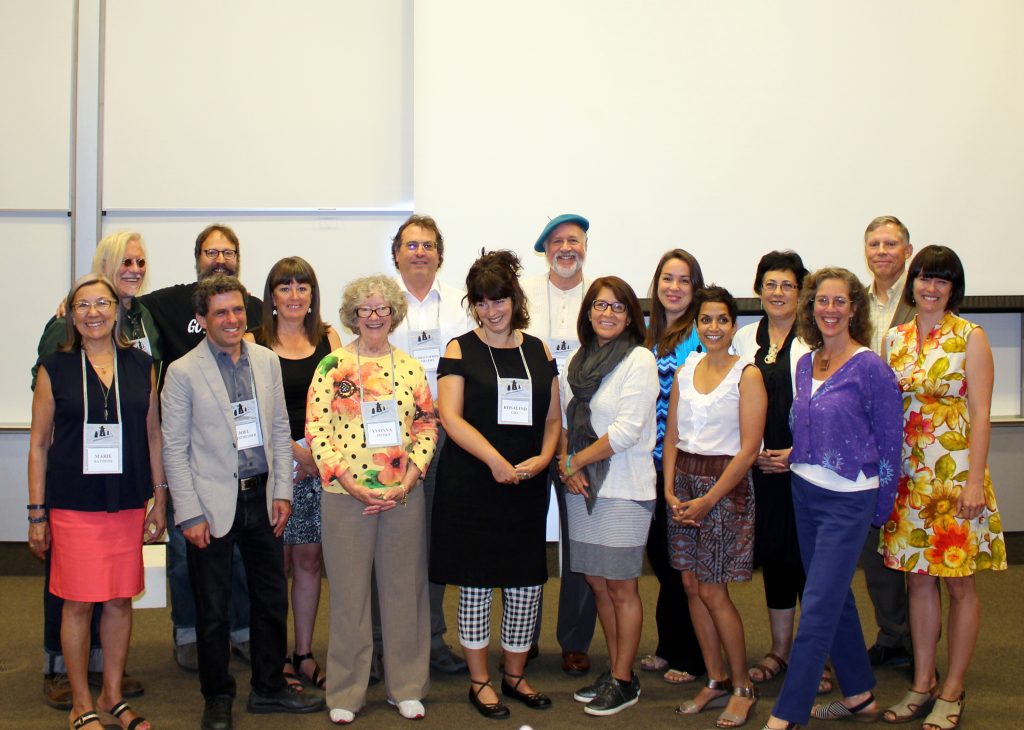
Photostream from #pepe2015
Click on the link to view the photostream from #Pepe2015 (Public Engagement and the Politics of Evidence Symposium) and to watch for videos of the conference at www.politicsofevidence.ca
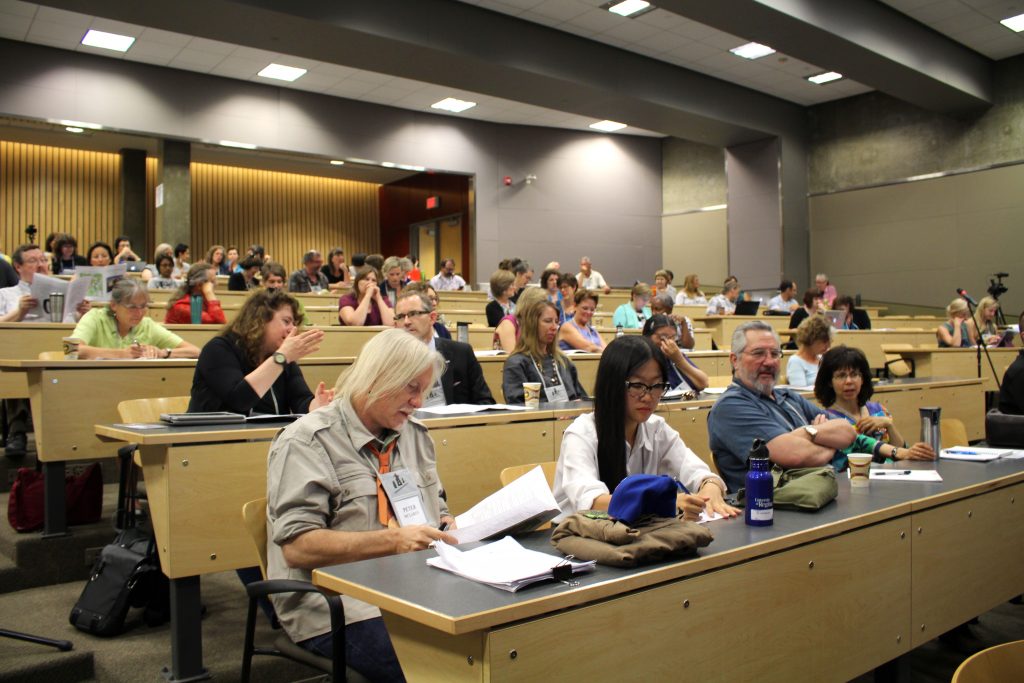
Blog reflections on recent research symposium
Public Engagement and the Politics of Evidence in an Age of Neoliberalism and Audit Culture
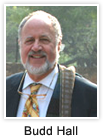 Written by Budd L. Hall on July 27, 2015
Written by Budd L. Hall on July 27, 2015
Marc Spooner and James McNinch of the Faculty of Education at the University of Regina were the co-chairs of a recent symposium held in the heartland of Western Canada. The symposium brought together some of the best known critical participatory research, Indigenous, decolonising, knowledge democracy and higher education scholars in North America with the notable international addition of Dr. Linda Tuhiwai Smith, Maori scholar and Pro-Vice Chancellor of the University of Waikato, Aotearoa. Other speakers included: Marie Battiste, Yvanna Lincloln, Leigh Patel, Chad Gaffield, Michelle Fine, Eve Tuck, Joel Westheimer, Rosalind Gill, Peter McLaren, Christopher Myers, Sandy Grande, Charlene Bearhead, Marcia McKenzie, and Nick Carleton. Notably Vianne Timmons, the President of the University of Regina and five other heads of Canadian universities were also in attendance.
Of importance to those of us alarmed by the misfit of the Western settler colonial knowledge dominated model of the modern university to the needs of the majority in the global South and the excluded North, is that some of the most respected critical scholars of the ‘West’ are also alarmed at the impact of neoliberalism on higher education. What is encouraging is that the nature of the critique is being strongly articulated and the call for a new narrative for higher education announced loudly.
The complicity of higher education in the epistemicide, the killing of the knowledge systems, of the Indigenous Peoples around the world took prominent place in discussions led by Indigenous scholars Battiste, Tuhiwai Smith, Tuck, Pete, Grande and Bearhead. Lincoln, Fine, Westheimer, Myers, McKenzie and Carleton chillingly illuminated the punitive role of accountability and audit culture in crushing critical and transformative thought. Linda Tuhiwai Smith importantly reminded us that for Indigenous peoples the pre-neoliberal university was in fact much worse!
Chad Gaffield, former President of Canada’s Social Sciences and Higher Education Research Council, the funding body that has supported so much community based research in recent years called for a new narrative for higher education that would transform a ‘mediaeval institution’ into a 21st century university.My own contribution framed as ‘Beyond Epistemicide: Knowledge Democracy and Higher Education’ documents how white male European knowledge through conquest and epistemological silencing has risen to global dominance and a misleading association with concepts of modernity and progress.
One could easily think that this was yet another academic conference that was long on critique but short on ideas for change. The call for us to do both critique and create was strong in all of the papers and discussions. The symposium itself was a creation of a space to re-imagine higher education in terms of social justice and hope. The symposium was up lifting. Why? First because of the quality of the critical analysis presented. Secondly because of the strong contributions of Indigenous women scholars, many of them young. Third because of the dozens of stories of higher education, knowledge democracy and action being taken in what some of us used to call ‘the belly of the beast’, And finally because of the spirit of mutual support, quality listening and hope that persists. This was a meeting that is a contribution to the idea that we are living in a time of a great turning…a transformation towards something else.
All of the talks have been video recorded and in time will be posted to the www.politicsofevidence.ca web site. Plans are also underway for an open access free of charge book.
See Budd’s blog at: http://unescochair-cbrsr.org/unesco/public-engagement-and-the-politics-of-evidence-in-an-age-of-neoliberalism-and-audit-culture/
